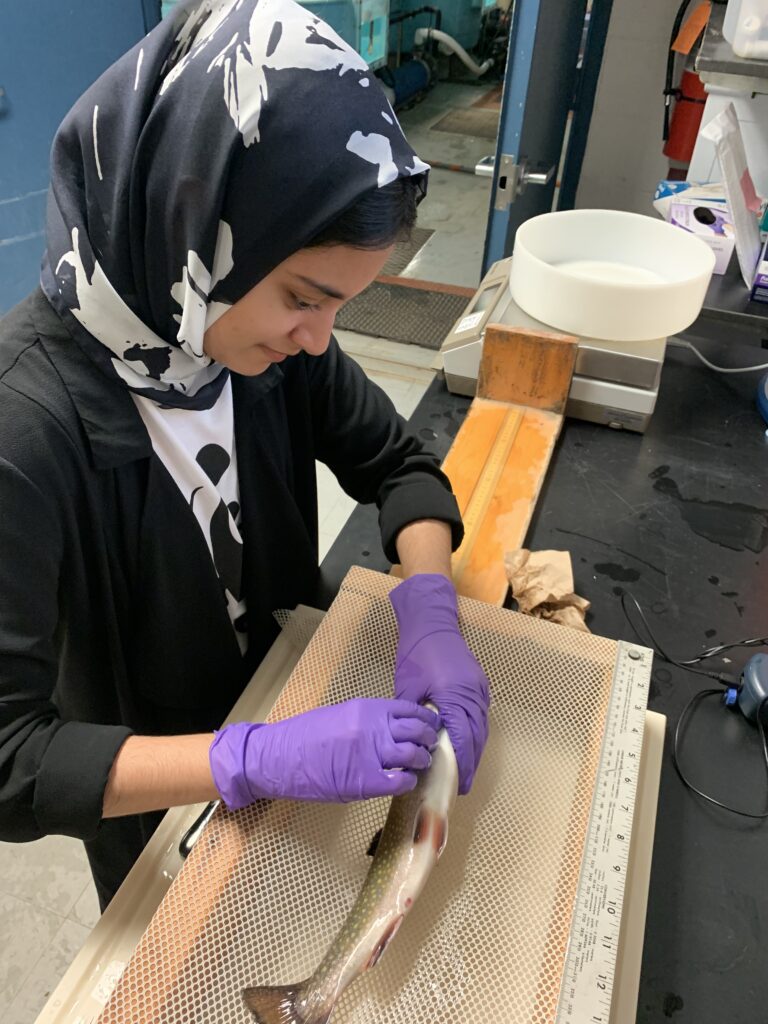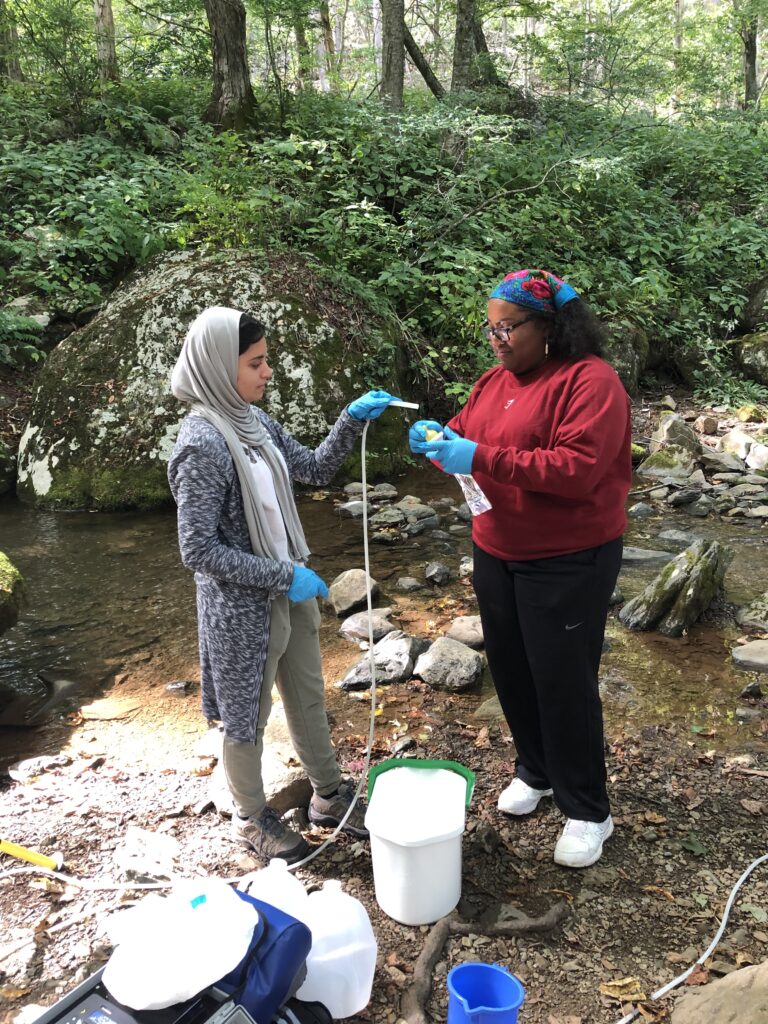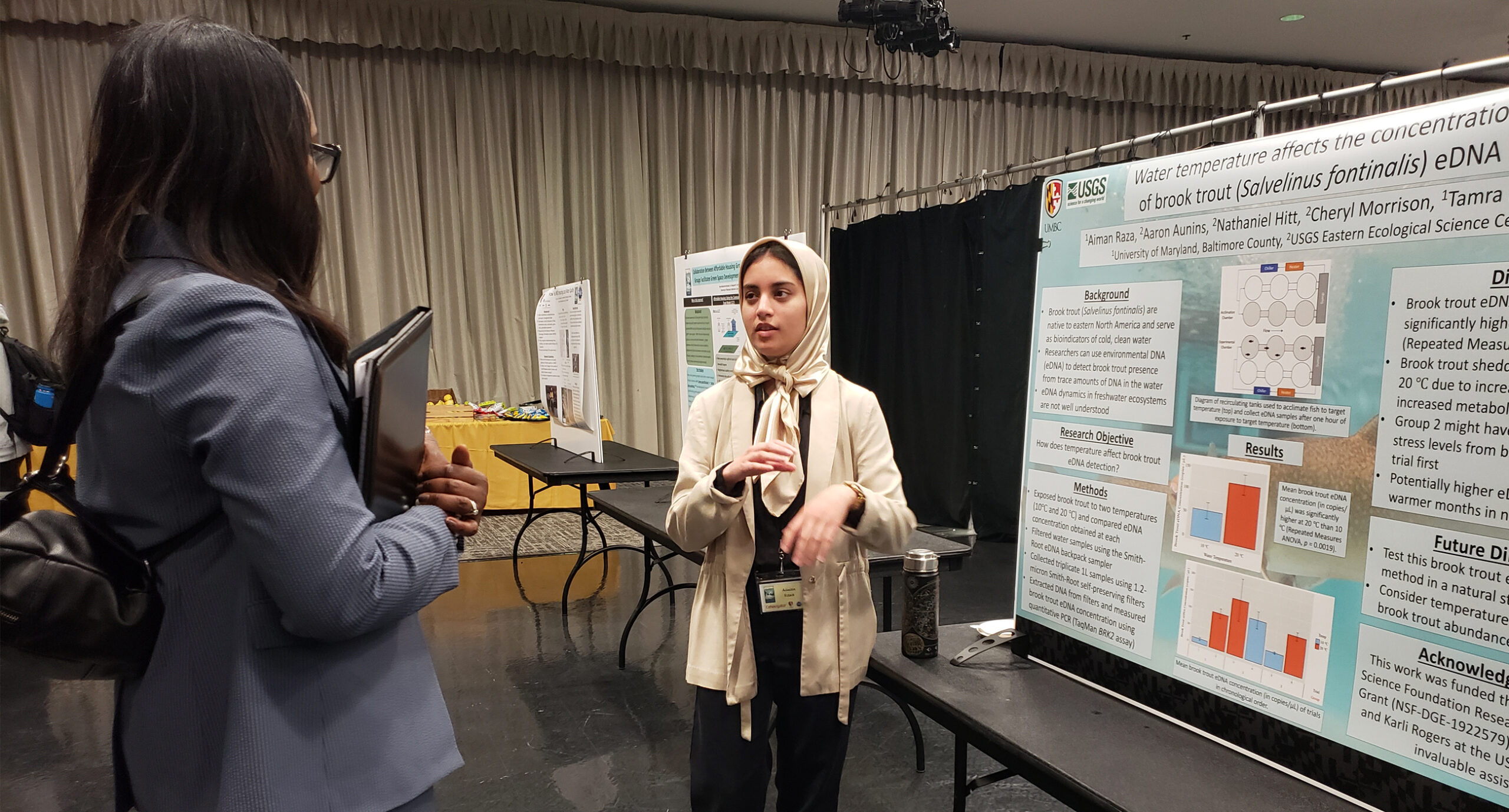Meet Aiman Raza ’22, biological sciences, and a current biological sciences master’s student in the Interdisciplinary Consortium for Applied Research in the Environment (ICARE) program. After studying at UMBC as an undergraduate, Aiman is thrilled to continue her graduate journey at UMBC studying brook trout using environmental DNA (eDNA). She says building connections in her cohort has helped enrich her academic experience and see the importance of interdisciplinary collaborations in environmental work.
Q: What’s the one thing you’d want someone who hasn’t joined the UMBC community to know about it?
A: The diversity of the UMBC community is one of the biggest strengths of this institution. No matter your background or interests, there is always a space for you to grow and thrive at UMBC.
Q: Tell us about someone in the community who has inspired you or supported you.
A: My faculty advisor, Tamra Mendelson, professor of biological sciences, has inspired and supported me throughout my academic journey. I first met Tamra when I was a freshman, and her passion for her research left such an impression on me that I decided to join her lab three years later as a graduate student.

Q: Tell us about what you love about your academic program.
A: The ICARE program is making incredible strides in bridging the gap between research and environmental justice around Baltimore. With an interdisciplinary network of scientists and community leaders, ICARE is fulfilling its dual mission of increasing the diversity of the environmental workforce and conducting community-engaged research in and around Baltimore.
Q: What led you to pursue graduate education at UMBC?
A: I came back to UMBC as a master’s student because I was drawn to the ICARE program’s mission. I am passionate about conducting applied research with practical implications for my community. As an undergrad, I was involved with research in the biology department and heard about the ICARE program through my mentor. I knew that graduate school was the next step in pursuing a career in applied research, and the ICARE program’s goals aligned well with mine. I wanted to learn and grow in a program that brought diverse perspectives and focused on environmental justice in addressing environmental issues.
“The ICARE program is making incredible strides in bridging the gap between research and environmental justice around Baltimore.
Q: How has being part of a cohort-based program influenced your experience?
A: The ICARE program has cultivated a community of professionals who care deeply about building a more just and equitable future for all. Every day, I get to learn from my cohort members, who come from various backgrounds and disciplines. Their unique research projects and diverse perspectives have helped me realize the importance of interdisciplinary collaborations in environmental work. Building close connections with my cohort has enriched my graduate school experience both professionally and personally. I am constantly inspired by their passion and look forward to seeing the great work we accomplish in the future.

Tags: Alumni, Biology, CNMS, GradResearch, ICARE, Meet a Retriever, Research

